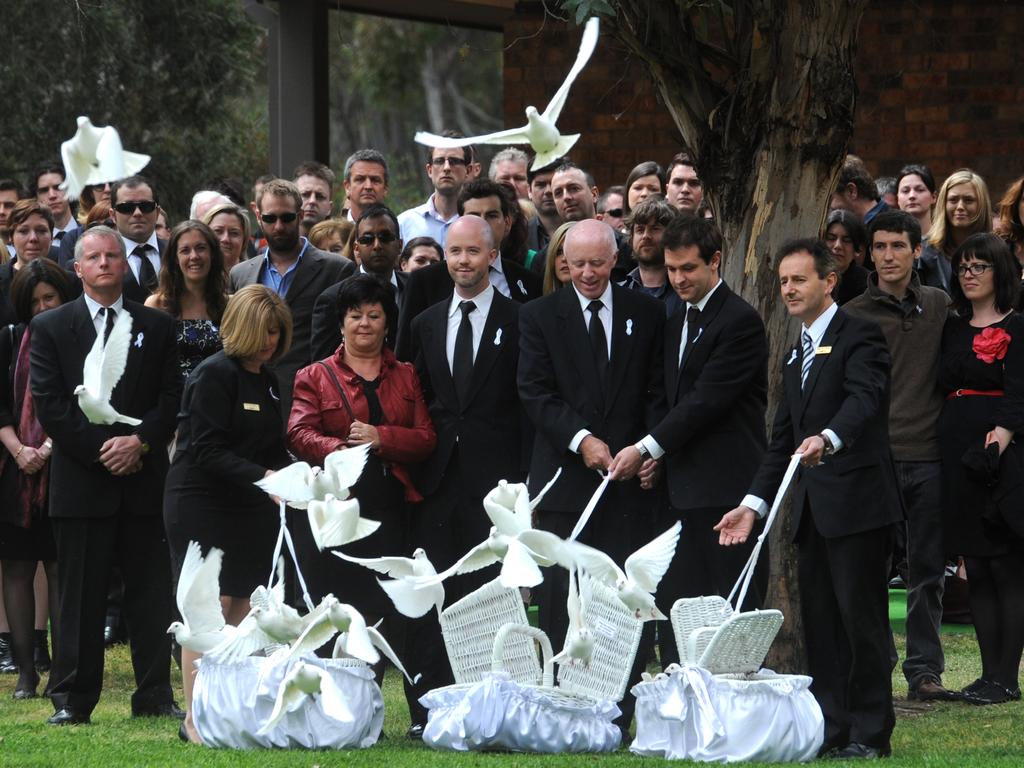Funerals shouldn’t gloss over life’s ‘messy’ bits
Accolades and achievements don’t matter in the end. A life lived – in all its foibles and uncertainty – is more interesting when it comes to funerals.

Funerals are a serious business, the ultimate storytelling challenge. How do you capture the fullness of a loved one’s life in an hour or so?
The temptation, naturally, is to throw everything in, to make sure nothing and no one is left out.
A less prescriptive approach seems better. Think small. One good eulogy is better than three poor ones. As for the eternal gatecrashers, God and Jesus – why must they materialise in the death even when they were so absent in the life?
I have attended hundreds of funerals in the course of work. There are premiers, gangsters, grandmas, sports stars, murderers, luminaries and the desperately unlucky nobodies whose unfortunate deaths cast them forever as victims.
The good services lodge in the mind for years afterwards. It does not matter who the departed are or what they did. The dos and don’ts of funerals are universal.
The farewell for Jill Meagher remains the most touching. Meagher’s fate unnerved a city before ending in the glare of police torches on a dirt road.
Few events so shredded the assumed bonds of human kindness. Meagher deserved to be alive, smiling, joking, a dancing light of quirks and one-liners.
Her death seemed so unfair. Yet her family presented a funeral that doubled as a stand-up comedy night.

Her mum described a “messy creature” who was “clumsy as hell”. Her mobile phone brick and her ignorance of history were reasons to laugh.
No one had ever sounded so alive, so real. Meagher was more than a symbol. She was held up for who she was.
This is a funeral high-water mark. To honour the departed in the tiny details.
Melbourne has hosted some monster send-offs. The biggest in modern times, Shane Warne, will soon eclipse the outpourings for Ted Whitten, who commanded thousands for his 1995 farewell.
The challenge here is that everyone felt like they knew Warne. He was adored for his flaws as well as his sporting greatness. How do you untangle the man from the public figure?
The Newton family succeeded in this recently. At the farewell for Bert, we heard that TV Dad was fun but home Dad was better. He was a star, true, but also a humble man of faith.
“I think she’s poisoning my food,” he was said to have said of his wife Patti in his final days, a comment so wrong – and so Bert – that it seemed so right.


One of the most moving funerals was the belated farewell for the four fallen police officers on the Eastern Freeway. They were celebrated not as victims but as nurturers and travellers and guitarists. Each of them sounded irreplaceable.
Funerals don’t always bring tears for the above reasons. They can drag. Almost everyone sounds over-baked after two hours of official reflection.
Well-meaning ministers sometimes invoke ghosts – and life lessons – that seem so removed from the life being commemorated.
Well-meaning friends recite resumes of a career’s work, as if offering the subject for a job interview. The key, perhaps? Say what you think, not what you think people want to hear.
Accolades and achievements do not matter much in the end. In death, you don’t hug an award or bathe in a glory. A life lived – in all its foibles and uncertainty – is more interesting, which is why Andrew Peacock means more as a doting father than a political powerbroker.
When businessman Frank Costa was farewelled, the most telling story was of when he once got it wrong, not all the stories of when he got things right.
Unvarnished anecdotes say more. This is especially true of men, who do not always articulate their tenderest feelings.
As the poet William Wordsworth said: “The best portion of a good man’s life is his little nameless unremembered acts of kindness and of love”.
Dig out those forgotten moments. Don’t save the good stories for the wake. Recount the hiccups, the impatience and the gestures that said more than words.
Think of the time, say, when your dad fought with the doctor for not showing you enough care, or when Bert Newton drove to his daughter’s broken-down car – with Cokes – to sit with her and wait.
Being human is about giving and receiving love. It is also about being silly and pig-headed and obstinate and mistaken.
It’s about doing the right thing and sometimes doing it badly.
Shane Warne’s farewell presents the best of reminders. How better to remember a loved one than as the imperfect wonder that they were?





